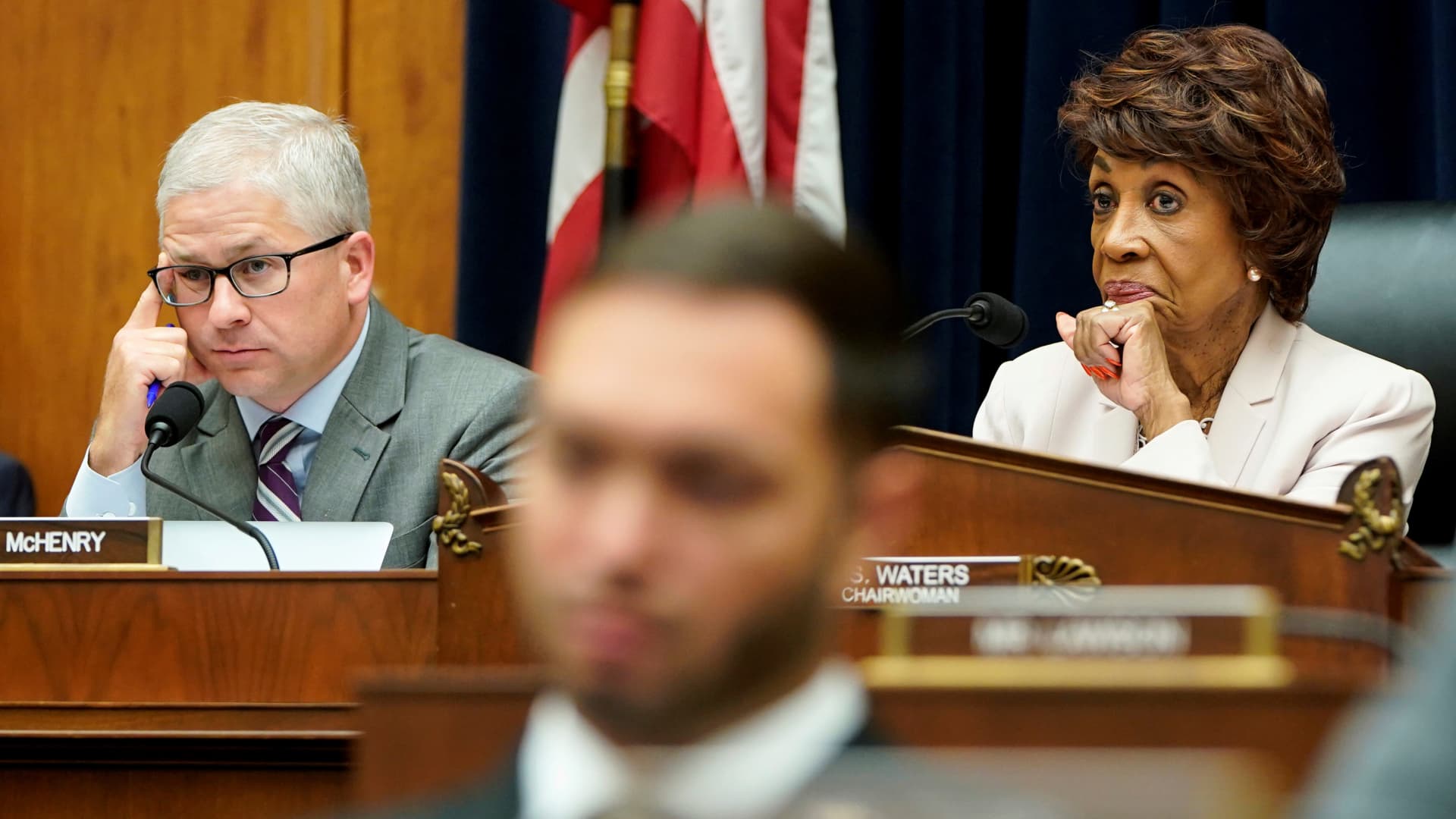
Rep. Patrick McHenry (R-NC) and Chairman of the House Financial Service Committee Maxine Waters (D-CA) listen as David Marcus, CEO of Facebook’s Calibra, testifies on “Examining Facebook’s Proposed Cryptocurrency and Its Impact on Consumers, Investors, and the American Financial System” on Capitol Hill in Washington, U.S., July 17, 2019.
Joshua Roberts | Reuters
WASHINGTON – As Republicans in the House dig in to investigate environmental, social and governance, or ESG, investing, a major industry group that represents thousands of companies is urging them to make reforms.
The National Association of Manufacturers, in a letter to the House Financial Services Committee, slammed recent rules and regulatory changes by the SEC and asked lawmakers to rein in proxy voting and limit the shareholder proposals companies need to disclose.
The industry lobbying group said recent changes from the SEC are harmful to manufacturers and are “putting their ability to finance their growth in jeopardy,” according to the letter, which CNBC obtained. NAM plans to send the letter to the committee Monday. The letter is addressed to committee Chairman Rep. Patrick McHenry, R-N.C., and ranking member Rep. Maxine Waters, D-Calif.
The letter underscores the business muscle behind the GOP’s battle against policies that back ESG investing. NAM represents about 14,000 companies, including Johnson & Johnson, Exxon Mobil and Pfizer.
ESG investing has become a heated policy battleground. McHenry said earlier this year that ESG has become the “latest tool” for liberals to “force their far-left ideology on the American people.” Progressive Democratic lawmakers have pushed back, arguing that considering ESG makes investors more aware of potential risks and opportunities.
The committee plans to hold a hearing Wednesday examining environmental and social policy investing and its impact on investors. That will be followed by other hearings this week and later this month digging into the influence of proxy voting firms that provide advice to investors.
Extinction Rebellion environmental activists protest around Bank Junction in the financial district on the 7th day of their ‘October Rising’ campaign on October 14, 2019 in London, England.
Ollie Millington | Getty Images
Republican lawmakers, who hold the majority in the House, ultimately plan to advance a package of legislation on several issues related to ESG investing. The measures, if they pass the House, are unlikely to gain traction in the Democratic-controlled Senate yet could continue to influence the debate.
Much of the House GOP’s concern centers on two firms that make up 97% of the proxy advisory market: Institutional Shareholder Services and Glass Lewis. Research from Stanford University shows recommendations from the firms have significant sway over how individual investors vote and how publicly traded companies are governed.
While the National Association of Manufacturers’ letter didn’t name either company, the group’s CEO, Jay Timmons, wrote that such firms “influence or control large swaths of the shareholder vote yet operate with minimal transparency and significant conflicts of interest.”
During the Trump administration, the SEC proposed several business-friendly rules allowing companies to see what proxy firms were recommending in advance and require proxy advisors to let their clients know about any response the companies had to their recommendations. Last year, the Biden administration rescinded both those rules.
Earlier this year, a group of Republican state attorneys general wrote to both companies expressing concerns that their recommendations “threaten the economic value of our States’ and citizens’ investments and pensions — interests that may not be subordinated to your social and environmental beliefs, or those of your other clients.”
ISS fired back with an 11-page response rebutting the accusations and ending with a promise to continue “serving the institutional investment community in a manner consistent with our legal and contractual obligations.” Glass Lewis issued a 13-page response, saying the state officials’ letter “fundamentally misunderstands our voting policies and how they are used in our work.”
